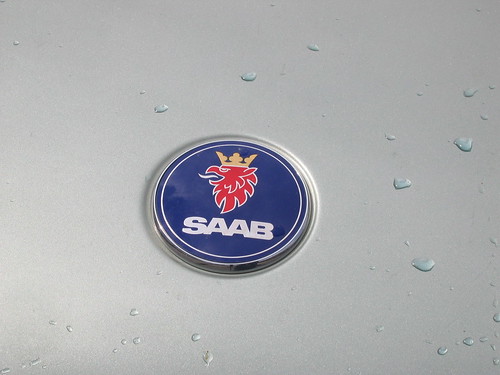(Source: AP via Yahoo, Forbes & Autoblog)
TransportGooru was one of the earliest portals that notified about the Swedish love affair that originally reported by the Swedish National Television. Though it was not officially confirmed by the companies involved (GM & Koenigsegg), pretty much everyone knew what is coming. General Motors made it official this morning, Saab will soon be back in Swedish hands. In many respects, this is the most fitting result for quirky brand. Koenigsegg is an oddball itself, building insanely fast supercars in a Scandinavian country where you can’t legally drive over about 60 mph.
GM said in a memorandum of understanding that the sale would include an expected $600 million funding commitment from theEuropean Investment Bank, guaranteed by the Swedish government. Additional funding for Saab’s operations and investments would be provided by GM and Koenigsegg Group AB, it said.The sale is expected to be completed by the end of the third quarter and is subject to regulatory approvals by authorities.

Image Courtesy: Autoblog
“This is yet another significant step in the reinvention of GM and its European operations,” GM Europe President, Carl-Peter Forster, said in a statement. “Closing this deal represents the best chance for Saab to emerge a stronger company,” he said, adding “Koenigsegg Group’s unique combination of innovation, entrepreneurial spirit and financial strength, combined with Koenigsegg’s proven ability to create world-class Swedish performance cars in a highly efficient manner, made it the right choice for Saab as well as for General Motors.”
The company behind the consortium, Koenigsegg Automotive, was founded in 1994 by Christian von Koenigsegg, a Swedish sports carfanatic and entrepreneur, who remains the chief executive. It makesluxury sports cars at its headquarters, a former air force base near Angelholm, in southern Sweden.
With a full-time staff of 45, Koenigsegg makes around a dozen cars a year, customized for every buyer. The company doesn’t advertise prices for its models, but they are believed to range between 8 million and 18 million kronor ($1 million-$2.3 million) each. Saab, on the other hand, has more than 4,000 staff worldwide, is represented in some 50 countries, and typically produces more than 100,000 cars a year.
One of the key details about the deal is the now obligatory government backing, this time in the form of a $600 million loan from the European Investment Bank, guaranteed of course by the Swedish government. That explains why minuscule Koenigsegg picked up Saab for free. It’s all about being Swedish.
“‘Saab needs to be left alone to proceed with its strategy,” says Matts Carlsson, an analyst of Goteborg Management Institute, noting that any tampering with its five-year plan to produce premium cars that are not aimed at competing with luxury brands such as BMW or Lexus ‘could destroy it.’
Crucially GM is pledging Koenigsegg its “platform and powertrain technology.” It’s very likely to include the “Epsilon 2” platform — the model (metal frame, geer box, technology) on which the latest GM European cars are based, such as the Opel and Vauxhall Insignias, says Tim Urquhart, an analyst at IHS Global Insight in London. That’s hugely significant for Koenigsegg as research and development of these platforms are a massive expenditure for automakers, he added.
Koeningsegg’s technology could prove valuable to Saab too. Koeningsegg has made a big push into green technology, making low emission, high-efficiency cars such as a flex fuel super car operating on both ethanol and petrol. It’s an area where Saab has been lagging behind its competitors, and could eventually help the company sell more cars.
It should help it increase sales volumes at Saab, which have fallen off sharply in recent years. Having access to GM’s technology will give the Swedish car maker several years to come up with a model for the future.
Koeningsegg also appears to have trumped other suitors, including Italy’s Fiat ( FIATY.PK – news – people ), which was interested in buying Saab after losing out in the race for Opel to Canada’s Magna International ( MGA – news – people ). (See “Fiat Keeps An Eye On Saab.”)
The sale of Saab to Koeningsegg marks a return to Swedish ownership after nine years in GM hands. Last year Saab posted a loss of 3 billion Swedish kronors ($384 million). It says it needs $1 billion to overhaul its business.


